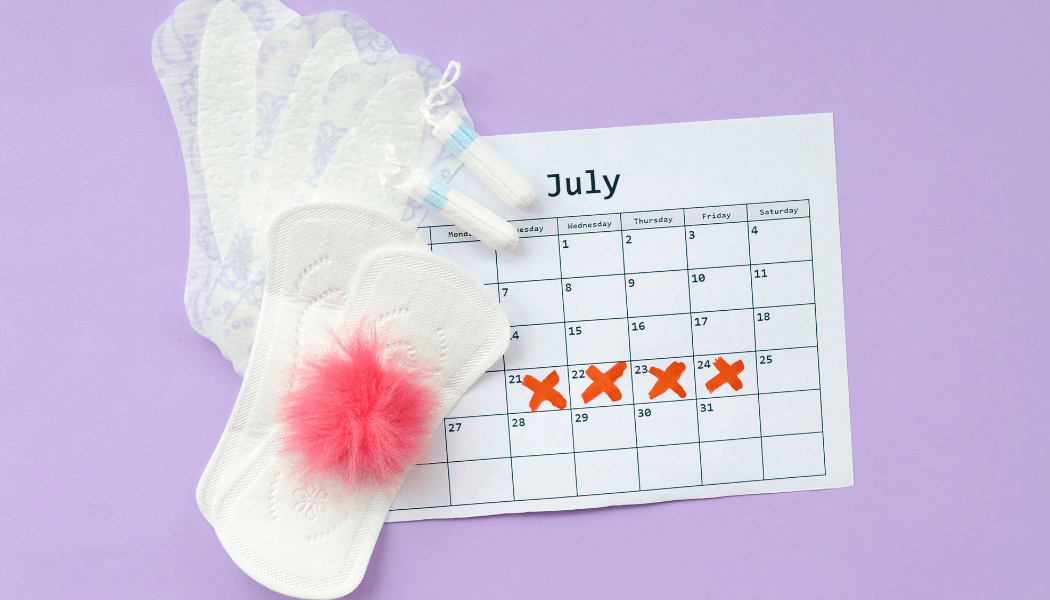How to Regulate Your Period: Solutions for Irregular Menstruation

Introduction
Hey there! Are you tired of playing the guessing game every month, wondering when your period will show up? Trust me, you're not alone. Dealing with irregular periods can be frustrating and confusing, but luckily, there are solutions out there to help you regulate your menstrual cycle.
First things first, let's address the big question: why do you have irregular periods in the first place? There are a variety of factors that can throw your menstrual cycle off balance, from hormonal imbalances to stress and lifestyle changes. But fear not, because in this article, I'm going to guide you through the ins and outs of regulating your period.
Whether you're looking for natural remedies, lifestyle adjustments, or medical interventions, I've got you covered. So sit back, relax, and get ready to take control of your menstrual cycle once and for all. Let's dive in!
What Causes Irregular Periods?
Irregular periods can be caused by a variety of factors, and understanding the possible causes is key to finding solutions. Hormonal imbalances are often to blame, and these can occur due to factors such as stress, excessive exercise, dramatic weight changes, or certain medical conditions. Polycystic ovary syndrome (PCOS), a common hormonal disorder, can also cause irregular periods. Additionally, thyroid disorders, pelvic inflammatory disease (PID), and uterine fibroids are among the medical conditions that may contribute to menstrual irregularities. Lifestyle choices such as smoking and excessive alcohol consumption can also affect your menstrual cycle. It's important to talk to your healthcare provider if you're experiencing irregular periods so that they can help determine the underlying cause and guide you towards the most appropriate solution for regulating your period.
When Should You See a Doctor About Irregular Periods?
If you are experiencing irregular periods, it is important to know when you should see a doctor. While the occasional fluctuation in your menstrual cycle is normal, there are certain signs and symptoms that may indicate an underlying medical condition. It is recommended that you schedule an appointment with your healthcare provider if:
- Your periods are consistently longer than 35 days or shorter than 21 days.
- You have missed three or more periods in a row.
- Your periods are extremely heavy and accompanied by severe pain.
- You experience spotting or bleeding between periods.
- You have been trying to conceive for more than a year without success.
Remember, taking care of your reproductive health is essential for overall well-being.
Lifestyle Changes to Regulate Your Period
Regulating your period can sometimes be as simple as making a few lifestyle changes. These changes can help to address the underlying causes of irregular menstruation and promote a more regular cycle. Here are some lifestyle changes you can make to regulate your period:
1. **Maintain a healthy weight**: Being underweight or overweight can disrupt your hormonal balance and lead to irregular periods. Aim for a healthy weight range through a balanced diet and regular exercise.
2. **Manage stress**: Chronic stress can disrupt the normal functioning of your reproductive system and affect your menstrual cycle. Practice stress management techniques such as meditation, yoga, or deep breathing exercises to reduce stress levels.
3. **Get enough sleep**: Lack of sleep can also disrupt hormonal balance and contribute to irregular periods. Aim for 7-9 hours of quality sleep each night to support a healthy menstrual cycle.
4. **Exercise regularly**: Regular physical activity not only helps maintain a healthy weight, but it also promotes overall hormonal balance and regulates menstrual cycles. Engage in moderate-intensity exercise such as brisk walking, cycling, or swimming for at least 30 minutes most days of the week.
5. **Eat a balanced diet**: A nutritious diet rich in fruits, vegetables, whole grains, lean proteins, and healthy fats provides your body with the essential nutrients it needs for optimal hormonal function. Include foods that are high in iron, calcium, and vitamin D to support a healthy menstrual cycle.
By making these lifestyle changes, you can help regulate your period naturally and improve your overall well-being. However, if you continue to experience irregular periods despite these changes, it is important to consult with a healthcare professional for further evaluation and guidance.
Herbal Remedies and Supplements for Regulating Menstruation
If you're looking for natural ways to regulate your period, herbal remedies and supplements may be worth considering. While more research is needed to fully understand their effectiveness, some women have reported positive results with certain herbs and supplements. Here are a few options to explore:
### Vitex (Chasteberry)
Vitex is a popular herb that has been used for centuries to balance hormones and regulate menstrual cycles. It works by stimulating the release of luteinizing hormone, which in turn regulates the production of progesterone. This can help to regulate your menstrual cycle and reduce symptoms of PMS.
### Dong Quai
Dong Quai is a traditional Chinese herb that is often referred to as the "female ginseng." It is believed to have a tonifying effect on the uterus and can help to regulate menstrual cycles. Dong Quai is also known for its ability to relieve menstrual cramps and reduce pain.
### Black Cohosh
Black Cohosh is a herb that has been traditionally used to treat menopausal symptoms, but it may also be beneficial for regulating menstrual cycles. It contains compounds that mimic the effects of estrogen in the body, which can help to balance hormones and regulate your period.
### Evening Primrose Oil
Evening Primrose Oil is rich in gamma-linolenic acid (GLA), an essential fatty acid that can help to regulate hormonal imbalances and reduce inflammation. Taking Evening Primrose Oil supplements may help to regulate your menstrual cycle and reduce symptoms such as breast tenderness and mood swings.
Once again before starting any herbal remedies or supplements, it's important to consult with your healthcare provider, especially if you have any underlying health conditions or are taking any medications. They can provide guidance on the appropriate dosage and potential interactions with other medications. Remember, herbal remedies and supplements are not regulated by the FDA, so it's important to choose reputable brands and follow the recommended dosage instructions.
The Pros and Cons of Hormonal Birth Control for Period Regulation
When it comes to regulating your period, one option that many women consider is hormonal birth control. While it can be effective in regulating your menstrual cycle, it's important to weigh the pros and cons before making a decision.
### Pros of Hormonal Birth Control
- Regularity: Hormonal birth control methods, such as the pill, patch, or hormonal IUD, can help regulate your menstrual cycle and make your periods more predictable.
- Lighter and shorter periods: Many women find that hormonal birth control can lighten the flow of their periods and reduce the number of days they last.
- Reduced symptoms: Hormonal birth control can also help alleviate symptoms associated with PMS, such as cramps, bloating, and mood swings.
- Acne control: Some types of hormonal birth control, particularly those containing certain types of hormones, can help improve acne.
### Cons of Hormonal Birth Control
- Side effects: Hormonal birth control can come with side effects such as nausea, headaches, breast tenderness, and mood changes. It may take some trial and error to find the right method and dosage that works best for you.
- Health risks: Some women may have an increased risk of certain health conditions, such as blood clots, while using hormonal birth control. It's important to discuss your medical history and any concerns with your healthcare provider.
- Hormonal imbalances: While hormonal birth control can regulate your period, it does so by suppressing your natural hormonal cycle. Some women may prefer to have a more natural menstrual cycle.
- Effectiveness: Hormonal birth control methods may not be 100% effective in regulating your period for everyone. It's important to discuss your individual needs and goals with your healthcare provider to determine the best approach.
Overall, hormonal birth control can be a helpful tool in regulating your period, but it's important to consider the pros and cons and discuss your options with your healthcare provider to find the best solution for you.
Medical Procedures to Regulate Your Menstrual Cycle
If you have been struggling with irregular periods and have tried various lifestyle changes without success, there are medical procedures available that can help regulate your menstrual cycle. These procedures are typically recommended when other methods, such as hormonal birth control or lifestyle modifications, have not been effective in managing your irregular periods. Here are some medical procedures that you can consider:
### Endometrial Ablation
Endometrial ablation is a procedure that involves the removal or destruction of the lining of the uterus. This procedure can be done using various techniques, such as heat, freezing, or microwave energy. By removing or damaging the uterine lining, endometrial ablation can help reduce or eliminate heavy or prolonged menstrual bleeding. It is important to note that this procedure is not suitable for women who wish to become pregnant in the future, as it can affect fertility.
### Hysterectomy
A hysterectomy is a surgical procedure that involves the removal of the uterus. This procedure is considered a last resort for managing irregular periods, as it is a permanent solution and eliminates the possibility of future pregnancies. Hysterectomy is typically recommended for women who have severe and debilitating symptoms or underlying medical conditions that cannot be managed by other means.
### Hormonal Therapy
Hormonal therapy, such as the use of birth control pills, patches, or hormonal intrauterine devices (IUDs), can help regulate your menstrual cycle by providing a steady dose of hormones that control ovulation and the thickness of the uterine lining. These hormonal methods can help regulate the timing and flow of your periods, making them more predictable and less irregular.
It is important to consult with your healthcare provider to discuss the best options for regulating your menstrual cycle. They will be able to assess your individual situation and recommend the most appropriate medical procedures based on your specific needs and preferences. Remember, every woman's body is unique, and what works for one person may not work for another.
Conclusion
In conclusion, if you're experiencing irregular periods, know that you're not alone. There are many factors that can contribute to menstrual irregularities, and it's important to understand that it's not your fault. By seeking medical advice and making lifestyle changes, you can take control of your menstrual cycle and find solutions that work for you.
Remember, everyone's body is unique, and what works for one person may not work for another. Be patient with yourself and give yourself the time and space to find what works best for you. Whether it's maintaining a healthy lifestyle, managing stress, or exploring hormonal options, there are a variety of solutions available.
Irregular periods can be frustrating and disruptive, but with the right support and guidance, you can find the solutions that will regulate your cycle and improve your overall well-being. Don't hesitate to reach out to healthcare professionals and explore different options. Your menstrual health is important, and you deserve to have a regular and healthy period.


